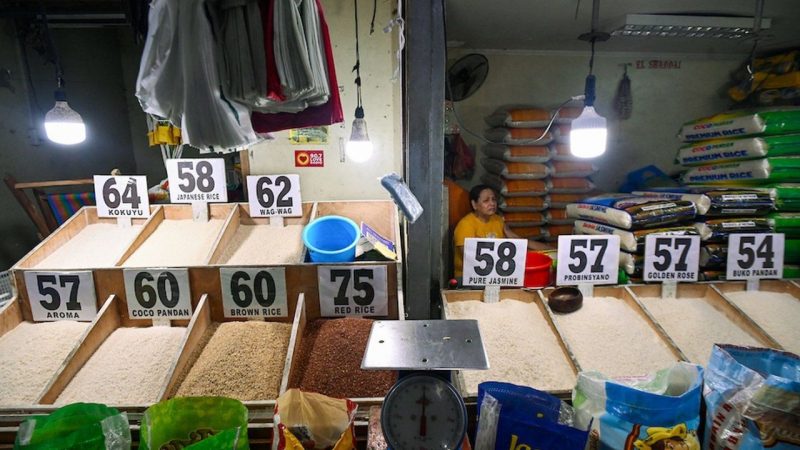MANILA — The country’s headline inflation rate eased to 1.9 percent in September 2024, marking its lowest level since May 2020, when it was recorded at 1.6 percent. This decrease is a significant drop from 3.3 percent in August and 6.1 percent in September of the previous year.
During a briefing on Friday, National Statistician Dennis Mapa attributed this downtrend to a slower annual increase in food and non-alcoholic beverages, which rose by just 1.4 percent, down from 3.9 percent in August. Food inflation specifically dropped to 1.4 percent in September, down from 4.2 percent the previous month.
A key factor in this decline was the inflation rate for rice, which decreased to 5.7 percent from 14.7 percent in August. Other contributors to lower food inflation included a faster decline in the prices of vegetables, tubers, cooking bananas, and pulses. Inflation rates also fell for corn, flour, bread, meat, and ready-made food products.
In a separate statement, National Economic and Development Authority (NEDA) Secretary Arsenio Balisacan assured the public that the government is committed to stabilizing commodity prices. “The continued slowdown in inflation is expected to boost consumer confidence, driving higher spending and consumption, and fueling business expansion,” he stated. He emphasized that easing food prices would particularly benefit low-income households, enabling them to allocate more resources to essential needs like education and health.
Balisacan credited the Executive Order issued by President Ferdinand R. Marcos Jr., which reduced rice tariffs to 15 percent, for helping to lower rice prices. “While we expect lower tariffs to reduce rice prices, we should continuously support local production through increased agricultural funding,” he said.
Addressing other inflationary pressures, Balisacan mentioned the government’s readiness to combat the African swine fever (ASF) through vaccination initiatives, following a successful rollout in Lobo, Batangas. The Department of Agriculture plans to expand these efforts to additional regions.
The recent signing of the Anti-Agricultural Economic Sabotage Act is another measure aimed at eradicating hoarding and anti-competitive practices, ensuring access to affordable food. Balisacan remarked, “With the passage of this law, we protect our farmers and ensure that every Filipino has access to affordable food, which is vital in protecting the most vulnerable members of society.”
Looking ahead, Balisacan noted the government’s preparations for the impact of La Niña, expected to persist until early 2025, and outlined strategies to protect vulnerable families from economic shocks.
House Ways and Means Committee chair and Albay Rep. Joey Salceda remarked that the low September inflation figures provide the Marcos administration with “plenty of room” to pursue more ambitious spending programs in economic and social services. He highlighted the substantial decline in food inflation due to reduced prices in fruits, vegetables, and fish.
While acknowledging positive trends, Salceda cautioned against complacency regarding rice inflation and expressed hope that the upcoming October harvest season would further lower rates. He also pointed out that corn prices, currently at a 6.9 percent inflation rate, are a significant concern due to their importance as inputs for various food products.
To tackle food security and prices, Salceda announced that the House of Representatives has created a five-committee panel focusing on key goals, including achieving a retail price of PHP 20 per kilogram of rice and boosting agricultural growth.
Ia/mnm







